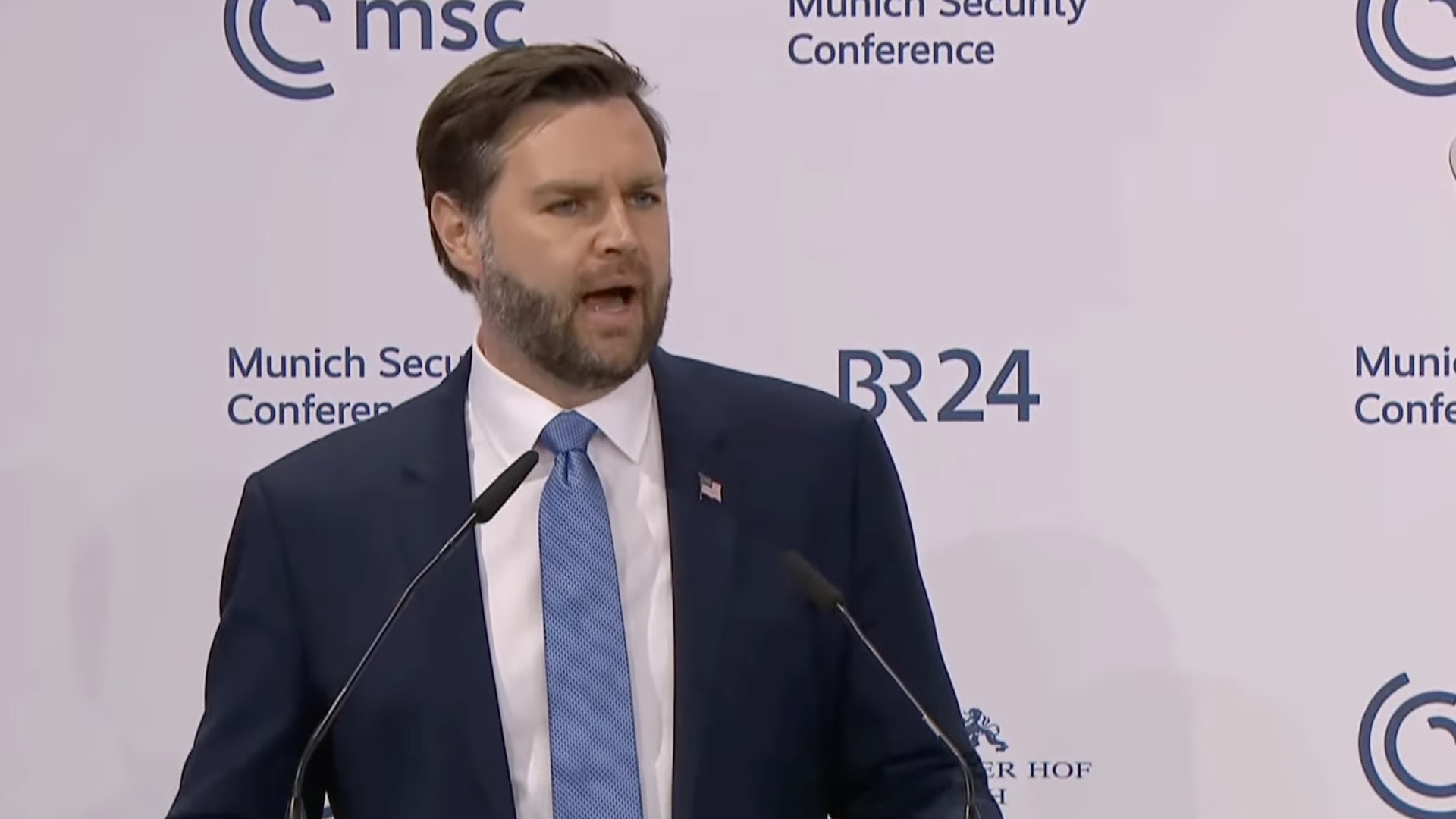JD Vance Makes the Case to the World on Why No One Should Invite Him to Anything
Screenshot via the White House
Munich, Germany – Vice President-ish – the hierarchy is confusing these days – J.D. Vance just whiffed on his first major foreign policy speech at the Munich Security Conference. This is not hard when the extent of your foreign policy speech is “Russia and Ukraine will make a deal, and you Europeans should pay more for defense, but actually I’m going to spend this next half-hour scolding you over a bunch of random things I read on Twitter about how you’re mean to my right-wing buddies who hate women.”
“What I worry about is the threat from within and the retreat of Europe from some of its most fundamental values, values shared with the United States of America,” Vance said Friday, at the opening day of the conference.
The threat from within is apparently censorship by the European government. It is also immigration, which Vance railed against by politicizing a truck ramming that happened in Munich the day before, reportedly carried out by a 24-year-old asylum seeker, though the investigation into the driver and his possible motive is still in its early stages. Vance also criticized the reluctance of governments to work with the far-right, which Vance described as “telling millions of voters that their thoughts and concerns, their aspirations, their pleas for relief are invalid or unworthy of being considered.”
As the Wall Street Journal reported he would, Vance implied that Germany should drop its resistance to working with the far-right Alternative für Deutschland (AfD). “Democracy rests on the sacred principle that the voice of the people matters. There’s no room for firewalls,” Vance said, referring to the so-called “brandmauer,” or firewall, that all mainstream German parties, on the left and the right, have said they will honor to keep the extremist AfD out of power.
-

-

-

-

-

-

-

-

-

-

-

-

-

-

-

-

-

-

-

-

-

-

-

-

-

-

-

-

-

-

-

-

-

-

-

-

-

-

-

-

-

-

-

-

-

-

-

-

-

-

-

-

-

-

-

-

-

-

-

-

-

-

-

-

-

-

-

-

-

-

-

-

-

-

-

-

-

-

-

-

-

-

-

-

-

-

-

-

-

-

-

-

-

-

-

-

-

-

-

-

-

-

-

-

-

-

-

-












































































































